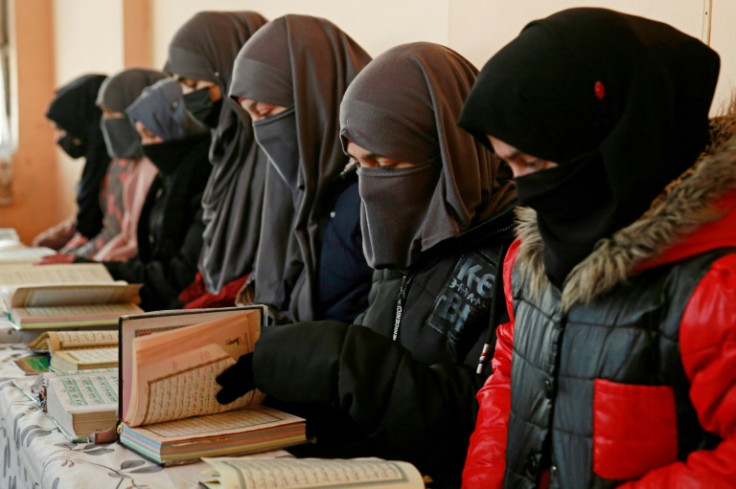'A Woman Is Not Equal To A Man,' Says Taliban Education Minister

KEY POINTS
- Minister Neda Mohammad Nadim said a man must be obeyed and a woman should accept his world
- He also said duties of the current government include behaving well toward the people and bringing good news
- Afghanistan is the only country in the world with restrictions on female education
Men and women are not equal in the eyes of Sharia, says a minister in the Taliban government in Afghanistan — the only country in the world with restrictions on female education.
Neda Mohammad Nadim, the Islamic militant group's acting minister of higher education, also condemned attempts being made to demolish the current system in the name of concerns related to women in the South Asian nation.
"The Almighty Allah has distinguished between men and women. A male is the ruler, he has the authority, he must be obeyed, and the woman must accept his world. A woman is not equal to a man; however, they (Western nations) have placed her above a man," Nadim said during a meeting at Baghlan University.
The Taliban-appointed minister said the duties of the current government include behaving well toward the people and bringing good news.
"This is the responsibility of the Islamic Emirate: to treat the people well. It should bring ease, it should bring good news, there should be no hatred, there should be no differences among the officials, and the second thing is to ensure security," he said.
Two years have passed since the Taliban stopped girls from receiving education beyond the sixth grade because it did not comply with their interpretation of Sharia, the guidelines from which Islam's legal system is derived.
The Taliban has been implementing their interpretation of Sharia in Afghanistan since the militant group took over in 2021, thus blocking anything they see as foreign or secular, which includes ideas of women studying and, to a large extent, being employed.
While boys were not kept away from education, girls in Afghanistan were banned from attending secondary schools and universities. Severe restrictions were enforced on women's work opportunities, freedom of movement and the way they dress.
A joint report, released last month by the UN Women, the International Organization for Migration and the United Nations Assistance Mission in Afghanistan, said more women were experiencing feelings of anxiety, isolation and depression.
Based on the responses from 592 women across 22 of Afghanistan's 34 provinces, the report also said women faced harassment, intimidation and violence on the streets at the hands of both Taliban and ordinary men when they were seen defying the decrees introduced by the regime.
© Copyright IBTimes 2024. All rights reserved.






















